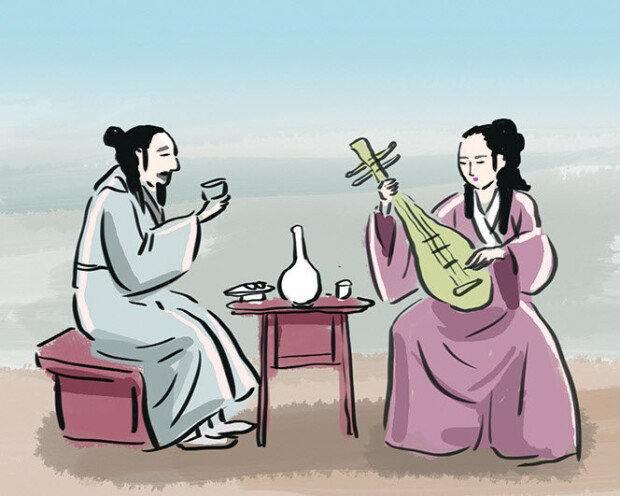Lure of woman
Lure of woman
Posted January. 12, 2024 07:36,
Updated January. 12, 2024 07:36

Chinese Ci literature is characterized by a lighthearted and freewheeling feature, unlike poetry, which comes across as a solemn piece of literature. The purpose of the former literary genre is to add excitement and fun to banquets or drinking parties at salons, whereas the latter represents the essence of noble-class literature. Given that lyrics in Ci literature are distant from delivering a grave message, it is more effective to adopt a plain and straightforward narrative to make them appear appealing. After all, who could have fun out of lyrics loaded with lofty mantras or moral teachings?
This work is an excellent representation of what Ci literature is all about. There is no way of figuring out whether they are in a relationship or one-night stands at a salon. Given the room decorated with silky curtains, it must belong to a lady who peels a freshly ripe mandarin orange with her dainty hands. She may sprinkle a pinch of salt on the peeled fruit with a sour and bitter taste as she has a sharp knife and snowy white salt. She even amuses the man with her reed performance in the room filled with the scent of incense on a burner that resembles an animal of good luck, showing how much she cares about him. Deep in the night, she says gently, “Stay here and chill out. It is a dark and frosty night outside.” The night wears on with the seductive offer that she fakes as a generous suggestion. Some unofficial historical records make an interesting argument that it describes the secret love affair of Emperor Huizong of Song and Li Shishi, one of his courtesans.







